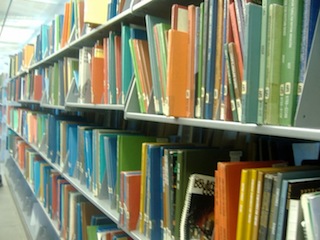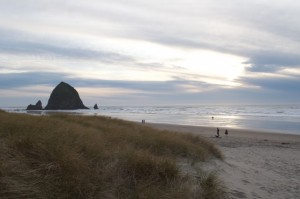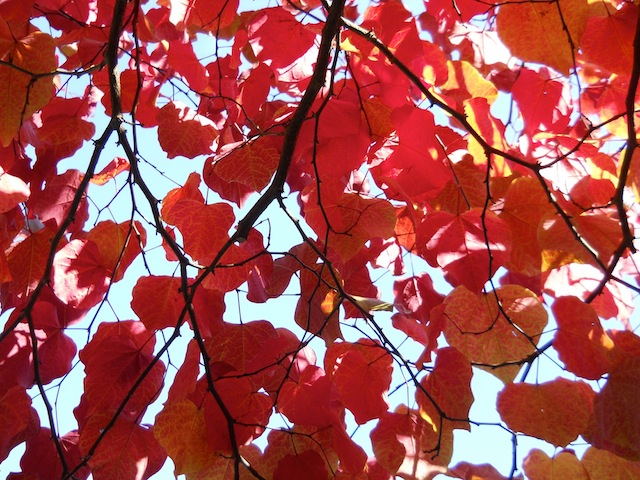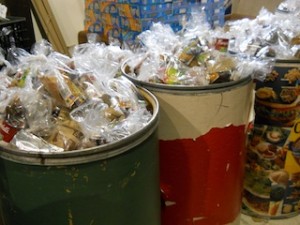And a Happy New Year to you. We’re just starting the lunar New Year, right? So that’s about as good a time as any to come back to this space.
I’m not trying for New Year’s resolutions, but I am thinking about a word (or words) for the year. Resolutions tend to set us up for failure or too-high expectations, and they remind me uncomfortably of diets—a lot of inflexible rules, a lot of can’ts and shouldn’ts, instead of encouraging permission slips.
Words for the year are different. If you work near a window (and I hope that you do), you might know something about what windows can do for you and your work. Working indoors means that you focus a lot on what’s right in front of you: your keyboard, your coffee cup, the stack of papers with their separate demands. Every once in a while, though, you glance (or stare) out the window. That glance reminds you that there are distances outside the rectangle of your desk, and that there’s a different quality of light besides indoor light bulbs.
Words for the year work for me just that way: windows that reset my vision, that remind me to refocus and expand.
Last year’s word was light. I wanted to focus on light—sunlight, for example, and it was a particularly un-sunny year. I wanted to run, but only if I didn’t take it too seriously. No agro mixes of Beastie Boys or Franz Ferdinand for most of the time—no, I wanted the Fleet Foxes. (Fleet: light: coincidence?) I wanted to write if it was light and fun. (It was.) I wanted to remember just how much love, and thus how much light, I have in my life. I wore a Larimar pendant almost every day, to remind me of the luminous sunlight and tropical ocean water of the Dominican Republic. Light got me through a lot. Somehow that worked, I think. I can go to intermediate yoga classes and keep up. I can run farther than I ever have, and running is not the torturous act that it once was. Though I used to hate being upside down for most of my life, I can rest comfortably somehow in a headstand.
Quick digression: I didn’t know what headstands meant for me until recently, either. I was talking to one of my yoga teachers about how I’d hated being upside down when I was little. Didn’t like loopy rollercoasters, or even somersaults, or even dangling over a couch arm. “Why is that?” she asked. “Is it a control thing?” Whoa. I stopped short. Oh, crap. “Y…eaah. Probably.” This feeling of being upside down is, like much of this uncertainty, probably very good for me. I’m starting to pick my way through the woods of uncertainty again. I am going off the comfort of stability and beaten albuterol no prescription paths and clearly marked trails.
So this year’s word? It’s closer to the intent of a resolution. It might be go.
I’ve got an artist statement in the works. Last year I tried to write one as part of a grant application, and it was terribly painful. I couldn’t even finish. The inner editor and critic had a field day. “I’ve always wanted to write and read ever since I was a little girl…” Bleahhhhh. Having been a professional literary critic for so long, it was humbling to have to write about my own writing. “Why do I write? Shouldn’t the writing speak for itself?” the writer-artist in me pleaded. No, that’s not what foundations (and publishers and agents, I imagine) want to hear.
So I had to look at what I do write, and what I have written. What are the issues that I write about the most? What do I want to accomplish as a writer? See, if you asked me what my teaching philosophy was, I could have told you about that easily. And really, the Nigerian author Chimamanda Adichie actually said much of what I would have wanted to say in her wonderful TED talk, “The Dangers of a Single Story.”
But as a writer? My hunch is that I will have to write more before I have a more developed writing philosophy. Nevertheless, given what I’ve written, just in the last year or two, I have a better idea of what’s important to me. I want it to be more like my teaching philosophy, infused with principles and politics and social justice. What I have so far is much more personal, but at least it is honest. So far it’s about loss and memory. I wrote a draft, but I’ll have to take another whack at the statement and get back to you. I just have to do it. I have to tell myself: just go.
Go can also be part of letting go. A few days ago, I recycled several bags of papers from my old life. That night, I had a series of dreams about being a published author, preparing for book readings. I had the excitement, the nervousness, and the adrenaline. I always woke up before I started reading, but I woke up happy.
Go means that I can probably go to more intermediate yoga classes, and that I can step up my time and pacing on my runs. Go reminds me to just apply for that writer’s grant, to publish the blog post, to revise the book proposal. I’m getting close to forty, and that’s as good a deadline as any for a first book. Go reminds me to write.
Go is the window that both reminds me to rest, yet pushes me out into the distance.
(What’s your word for the year?)












